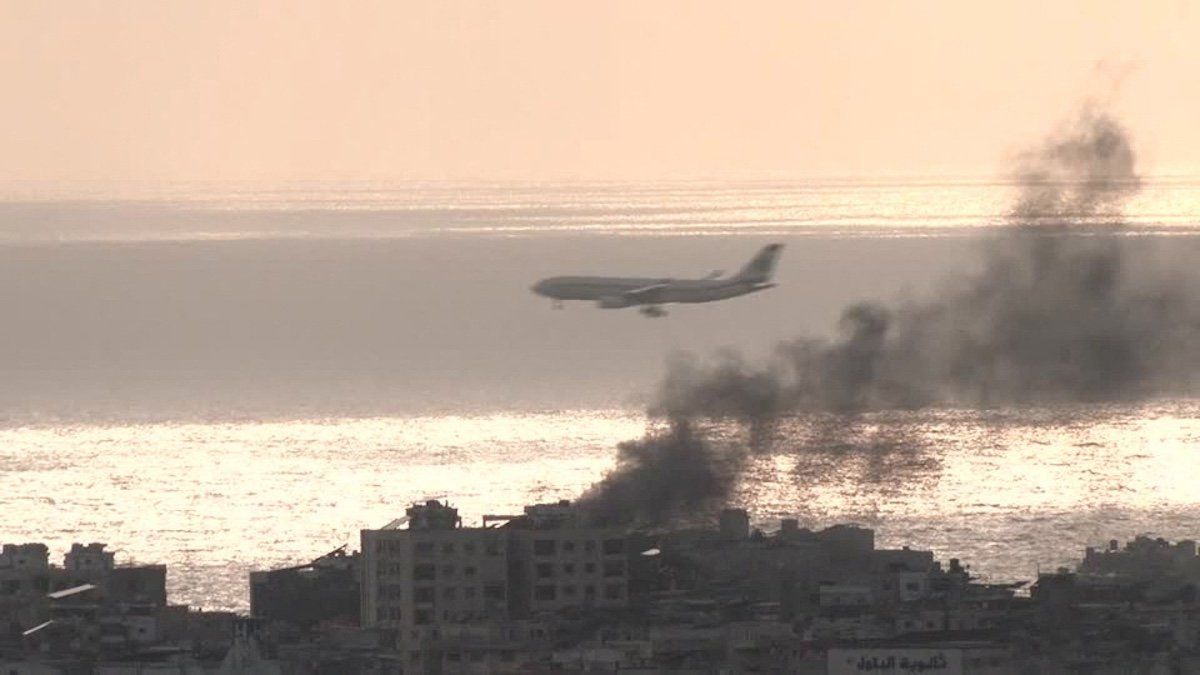The world still awaits Israel’s retaliation against Iran for Tehran’s brazen missile attack last Tuesday. But in the meantime, Israeli forcesconducted further airstrikes in Syria, hitting a weapons depot south of Homs and a rocket depot in the eastern countryside on Sunday. The strikes – which apparently aimed to stem the flow of weapons from Syria to Hezbollah in Lebanon –caused “material losses,” according to Syrian state media. They came two days after Israel launched rocket attacks near a Russian airbase in Syria, where Russian forces were reportedly “confronting” the missiles for over 40 minutes, raising concerns that Russia — an Iranian ally – could become embroiled in the escalating regional war.
Meanwhile, on Sunday night, Israel resumed bombardment of targets in Beirut while Hezbollah rockets struck the Israeli port city of Haifa. This followed a weekend of intense Israeli bombardment of Hezbollah targets in suburban Beirut, which took the lives of 23 people, according to the Lebanese health ministry.
Key leaders targeted. The Israeli foreign ministry claims that its air force killed Hezbollah commander Hader Ali Taweel on Sunday. Iran’s Quds Force commander Esmail Qaaniis also missing after Israeli strikes on Beirut last week, though it is unclear whether he is dead or wounded. The Quds Force oversees dealings with militias allied with Tehran across the Middle East, including Hezbollah, and confusion about Qaani’s fate is reportedly causing panic among the troops. The strike was in fact targeting senior Hezbollah figure Hashem Safieddine, who is also unaccounted for, and who was seen as a possible successor to Hezbollah’s former leader, Hassan Nasrallah.
But is Hezbollah the real target? Israel’s increased military operations have led observers to speculate that Israeli Prime Minister Benjamin Netanyahu is expanding operations to target Iran – and drag the US into the conflict. Bibi is also suspected of seeking to torpedo a cease-fire in Gaza to harm the Democrats’ chances in the upcoming US election while boosting his own favorability at home. His poll numbers have climbed since the war with Hezbollah heated up but not far enough to allow him to form a majority government if an election were held today.
When asked on Friday whether Netanyahu was attempting to influence the US election, a frustrated US President Joe Biden said “I don’t know” before adding, “No administration has helped Israel more than I have … And I think [Netanyahu] should remember that.”